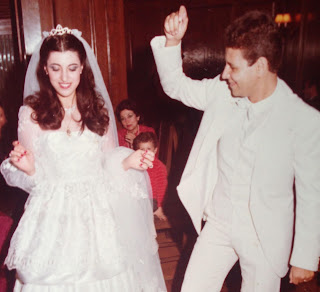Bread | Karakashangi (1977)
"Yazayid Fi Al Halawih," is absolutely gob-smackingly complex, with twisty strings and male and female choruses, and represents a clear (if momentary) departure from Ahmed's shaabi-forward output to date
In January 1977, Egypt explodes into a series of riots that wash through the entire country, from Alexandria, where they initiate, though Tanta, Cairo and Suez, down to Luxor and Aswan. At the time, the vast majority of the country's citizens rely on guaranteed-price rations of a number of staples, including baladi bread -- the roti, if you will, of Egypt. When these rations are cut, many Egyptians take to the streets, targeting police stations and other symbols of governmental authority.
The uprising, which lasts for two days until crushed by the army on January 20th, comes to be known as "the bread riots." Some 80 people are killed during the turmoil, hundreds injured, and over 1,000 arrested. The clashes are significant enough to gain the attention of the international press, resulting in coverage by the likes of the New York Times.
Given the now several-years-running ascendency enjoyed by Ahmed Adaweya and his crew of composers, lyricists, and musicians, they are not likely affected by the cuts, but are clearly aware of the situation and sympathetic to the many people directly impacted. Just as important, the riots likely help fuel Ahmed's growing success. The old "art song" guard is mostly dead (El Atrache, Kalthoum, and in March 1977, Halim Hafez), and Ahmed represents the "authentic" voice of Egypt's present moment speaking to (and for) the average urban-ish Egyptian.
Ahmed releases two cassettes in 1977, Krakashangi and the unimpeachable masterpiece that is Bint El Sultan.
A related aside: I received an email a few days ago from Hatim, an Egyptian radio producer based for the last couple of decades in the Netherlands. Hatim is a fan of Ahmed's going back to his own days in Cairo and has produced three hour-long episodes devoted to Ahmed's music ripped from his personal cassette collection.
Episode One (recording not archived)
Just as important, Hatim lists the musicians appearing on Ahmed's recordings throughout most of his career. They are:
Accordion: Mohamed Asfour; Hassan Abu El Seoud
Trumpet: Samy El-Babli
Percussion director: Hassan Anwar
Violin: Mahmoud El-Gersha; Abdo Dagher
Ney: Sayed Abu Sheffa
Saxophone: Samir Sorour
Hatim does not mention organ, but as I've written previously, it's very likely Hany Mehanna, given Mehanna's close association with Sout El Hob (and that early split cassette). Karakashangi is relatively qanoun heavy, but I'm not sure if we can determine who is playing.
Karakashangi features a side of pop-forward brightness (bouyed, in part, by the aforementioned qanoun and high-register of the organ); the second track, "Yazayid Fi Al Halawih," is absolutely gob-smackingly complex, with twisty strings and male and female choruses, and represents a clear (if momentary) departure from Ahmed's shaabi-forward output to date. Although the track does not appear on Ahmed's Best Of or Very Best Of compilations, it's one of my favorites. Unfortunately, there's quite a bit of sibilance and other high-end distortion on my cassette. When I find a better-sounding copy, I'll be sure to share it.
Side A's brightness and pop innovation notwithstanding, it's the two mawawil on Side B that really get the blood moving here. (And there's none of Side A's distortion and sibilance to distract.) As we'll see in the next post (which I hope to have live later today), Ahmed is about to double, even triple down on the roots aspect of his music, and it's going to pay off in spades.
Listen to Side A
(Listen to "Karakashangi")
(Listen to "Yazayid Fi Al Halawih")
(Listen to "Habibi Ya Easal")
Listen to Side B
(Listen to "Mawwal Bihubi Khamsa")
(Listen to "Mawwal Ana Sabir")








Comments
Post a Comment